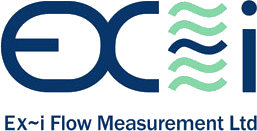If you were asked to consider the mid- to long-term outlook for the shipping industry based on what has happened over the last six months or so, you might think all is rosy. The cost of bunker fuel has come down, in line with the continuing fall in the price of crude oil (which is down by more than 50% since June), while value-seeking oil buyers in the Far East are still active enough to keep tankers busy and tanker operators happy.
In another sign of confidence in the sector, shipping operator Euronav is one of several firms planning a share offering on the New York Stock Exchange.
However, history shows that the picture can quickly change in the volatile business of international shipping: four boom years in the last decade were immediately followed by six tough years.
The problem is that the industry tends to be at its most profitable when demand for ships outstrips their supply – even though the ship shortage is just a short-term imbalance that will at some point correct itself, leaving the industry facing the problem of overcapacity.
Global overcapacity has become all the more likely because of the big spike in the number of tankers built in 2014 when it was thought the market was improving. Recently released figures seem to confirm the way things are heading: the global fleet is expected to increase in size by 7.2% in 2015, while demand will lag behind at a projected 5.3%. Slowing demand also means a decline in charter rates for tankers.
Because the ships in the existing global fleet are, on the whole, relatively new, scrappage is less likely to solve the overcapacity issue.
Forecasters suggest a greater number of carriers will make a profit this year than in 2014. This will depend, though, on which way various scenarios play out, and how soon. These include, of course, whether fuel costs stay low. Another ‘unknown’ on the horizon is the impact of port congestion (which is largely outside the control of carriers but piles extra costs on them).
In the meantime, shipping companies have the option of deploying their vessels to take advantage of this low-price oil phase in the form of ‘floating storage’ – storing oil in vessels until the price rises to a level at which traders can sell it more profitably.
Whatever the outlook for global crude oil, Ex~i Flow continues to provide measurement systems to help manage this vital energy source. Call us on 01243 554920 or visit our website to find out more about our products and services.
